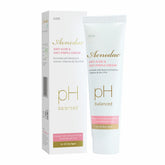
Decaf Coffee Good or Bad
Decaf Coffee: Good or Bad?
Coffee is one of the world’s most popular beverages. Many people enjoy drinking coffee, but they want to limit their caffeine intake for personal preferences or health reasons.
For these people, decaf coffee is an excellent alternative. Decaf coffee is just like regular coffee, except the caffeine has been removed. This article takes a detailed look at decaf coffee and its health effects, both good and bad.
What is decaf coffee and how is it made?
Decaf is short for decaffeinated coffee. It’s coffee from coffee beans that have had at least 97% of their caffeine removed .
There are many ways to remove caffeine from coffee beans. Most of them include water, organic solvents, or carbon dioxide.
Coffee beans are washed in the solvent until the caffeine has been extracted from it, then the solvent is removed.
Caffeine can also be removed using carbon dioxide or a charcoal filter — a method known as the Swiss Water Process.
The beans are decaffeinated before they’re roasted and ground. The nutritional value of decaf coffee should be almost identical to regular coffee, apart from the caffeine content.
However, the taste and smell may become a little milder, and the color may change, depending on the method used.
This can make decaf coffee more pleasing to those who are sensitive to the bitter taste and smell of regular coffee.
How much caffeine is in decaf coffee?
Decaf coffee is not completely caffeine free.
It actually contains varying amounts of caffeine, usually about 3 mg per cup.
One study found that each 6 ounces (180 mL) cup of decaf contained 0–7 mg of caffeine.
On the other hand, an average cup of regular coffee contains about 70–140 mg of caffeine, depending on coffee type, preparation method, and cup size
So, even if decaf is not completely caffeine free, the amount of caffeine is usually very small.
Coffee is not the devil it’s been made out to be.
‘It’s actually the single biggest source of antioxidants in the Western diet.
Decaf usually contains similar amounts of antioxidants as regular coffee, although they may be up to 15% lower.
This difference is most likely caused by a small loss of antioxidants during the decaffeination process.
Antioxidants are very effective at neutralizing reactive compounds called free radicals.
This reduces oxidative damage and may help prevent diseases like heart disease, cancer, and type 2 diabetes.
In addition to the antioxidants, decaf also contains minor amounts of some nutrients.
One cup of brewed decaf coffee provides 2.4% of the recommended daily intake of magnesium, 4.8% of potassium, and 2.5% of niacin, or vitamin B3.
This may not seem like a lot of nutrients, but the amounts add up quickly if you drink 2–3 (or more) cups of coffee per day.
Health benefits of decaf coffee
Despite having been demonized in the past, the truth is, coffee is mostly good for you.
It’s linked with numerous health benefits, which are mainly attributed to its antioxidant content and other active substances.
However, the specific health effects of decaf coffee can be hard to determine.
This is because most studies assess coffee intake without distinguishing between regular and decaf coffee, and some don’t even include decaf coffee.
Also, most of these studies are observational. They cannot prove that coffee caused the benefits, only that drinking coffee is associated with them.
Type 2 diabetes, liver function, and premature death
Drinking coffee, both regular and decaf, has been linked with reduced risk of type 2 diabetes. Each daily cup may reduce the risk up to 7%.
This suggests that elements other than caffeine may be responsible for these protective effects.
The effects of decaf coffee on liver function are not as well studied as those of regular coffee. However, one large observational study linked decaf coffee with reduced liver enzyme levels, which suggests a protective effect.
Drinking decaf coffee has also been linked with a small but significant reduction in the risk of premature death, as well as death from stroke or heart disease.
Decaf coffee causes significantly less acid reflux than regular coffee. Drinking more than two cups a day may also help reduce the risk of developing rectal cancer.
Regular coffee has several advantages over decaf
Coffee is probably best known for its stimulant effects.
It increases alertness and reduces feelings of tiredness.
These effects are directly linked to the stimulant caffeine, which is found naturally in coffee.
Some of the beneficial effects of regular coffee are directly attributed to the caffeine, so decaf should not have these effects.


